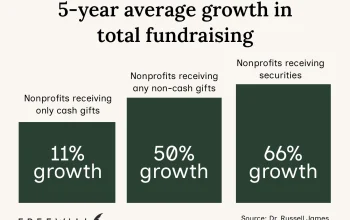Scrutiny accountants look at all of the transactions that might be fudged, track money movements from account to account or even cross-border to uncover what money was stolen.
White-collar criminal trials have a key role to play in expert witnesses who are able to illuminate the financial issues at the heart of these cases, and to explain the technical data and plans to judges, juries and lawyers who aren’t necessarily well-versed in finance.
Preventing Economic Crimes
Finance crimes can be a real issue for business, the government, and communities. Economic crime discourages investment and creates the conditions that breed corruption – all of which forensic accounting can help to prevent, by reporting criminal activity and supporting the prosecution case.
Forensic accountants can check whether a company filed false tax returns by studying bank statements and transactions. Embezzlement is another type of financial crime in which someone knowingly takes money or property that was legally assigned to them (eg, an employee transfers company money to personal accounts).
Bibliometric analysis is quantitative research that uses data analysis to study research publications about a topic like forensic accounting. Bibliometric analyses uncover the trends, and help you see how researchers are thinking about this research in accounting. It also allows for cross-disciplinary collaboration and exchange of knowledge.
Detecting Illegal Activity
Forensic accounting does this very important thing for a company: it catches crime and prosecutes it. From employee embezzlements to insider trading and money laundering, forensic accountants go to great lengths to look for evidence of business fraud and to weed out the culprits.
Forensic accountants rely on many tools to spot illegal acts. They are analytics warehouses that combine various data sets, and supervised and unsupervised models – methods that allow them to view data from all possible directions looking for underlying trends such as suspicious behavior or abnormal distributions of numbers that could be signs of fraud.
Forensic accountants use them to build an anti-fraud programme for businesses. That can be staff training, anti-fraud policies and procedures, whistleblower protection schemes to encourage employees to report fraud, or whistleblower protection schemes to motivate employees who believe they’ve committed a financial crime to report it. These measures all try to create an atmosphere of trust and responsibility in companies – and in the end build stronger financial, asset, transparency and crime industries.
Creating a More Equitable Society
Once they have found the traces of fraud or criminal activity, forensic accountants document what they find and present it to the authorities as evidence in white-collar crime cases. They’re what makes these proceedings possible because they have documentation and visual representations that make it easier for judges, juries, attorneys and the client to understand any financial aspects involved.
Forensic accountants try to ward off future events by making companies fuck up. In identifying anomalies — unauthorised transfers, strange patterns of account use or inconsistencies between transactions and ones made — forensic accountants offer law enforcement agencies and companies the confidence to follow rules and earn consumers and investors’ trust.
Forensic accounting is an area that has more applications and reaches into new spaces. Bibliometric analyses are used in the pursuit of understanding, co-operation and future research in this domain in order to provide its map of this topic’s research landscape and trends.
Creating a More Secure Society
Forensic accountants are indispensable to fraud, embezzlement, money laundering and financial crimes. As liaisons between the police, lawyers and businesses, these forensic accountants identify blips or anomalous patterns which could be evidence of criminality – some have even been used to expose serious corporate fraud, such as the Enron scam, in which the executives and auditors were prosecuted.
Other times, forensic accountants come into the picture to find stolen wealth and recover it. They collaborate with local and foreign police forces to make sure that money that has been stolen or stolen by a criminal, is returned to those who have actually received it as soon as possible.
Forensic accounting is still evolving to deal with the money crimes that plague our societies and defend our most precious. Scientists are looking into the possibility of using blockchain to supplement forensic accounting by providing a permanent record of transactions – reducing the workload while minimizing human error.





